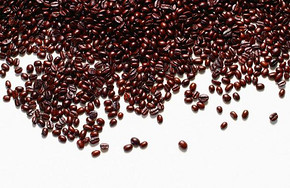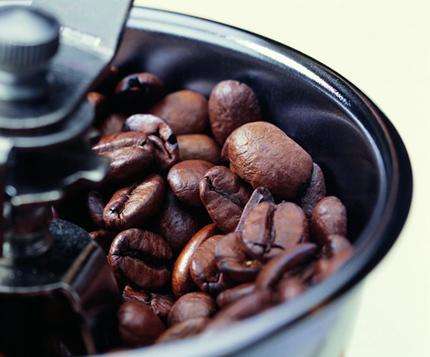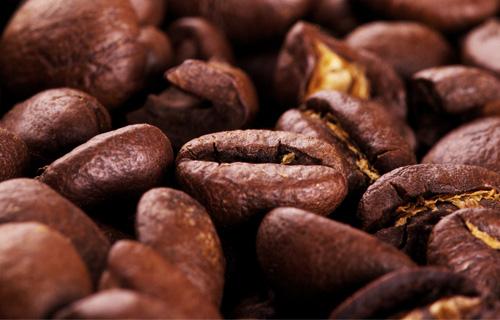The reason why Peruvian raccoon dung coffee is expensive
Follow the caf é (Wechat official account vdailycom) and found that Beautiful Cafe opened a small shop of its own.
Raccoon poop coffee is expensive.
The reporter saw an endless stream of people coming to buy and drink coffee in a small coffee shop in Lima, Peru. On the shelf are cans of coffee from different parts of Peru. The reporter found that a kind of coffee called raccoon is ridiculously expensive, 10 times the price of other varieties of coffee, or more than $150 a kilogram. As soon as I asked the boss, it turned out that this is a kind of coffee made from animal droppings, which is mainly produced in the Amazon of Peru. It is made from coffee beans eaten by raccoons, digested and excreted, which are washed and roasted to form this kind of pure natural raccoon dung coffee (pictured).
The annual output of this kind of coffee is less than 2000 kilograms, and most of it is exported to the United States, with an annual export of more than 1400 kilograms. A cup of coffee in the United States costs 60 US dollars, and the price of one kilogram is as high as 1400 US dollars. Even a small cup in a coffee shop in Peru costs more than $10, which is the most expensive coffee in the world.
The reporter tasted the raccoon dung coffee and chose the American production method, so that the coffee taste will be relatively pure. The first sip feels that the coffee taste is very strong, slightly bitter, with a little sugar, the taste becomes much softer, and the aroma of the coffee in the mouth lasts long after drinking. A woman who bought coffee beans next to me told me that adding some wine would taste better-maybe everyone likes it differently.

Raccoon is a coffee factory.
This gourmet coffee from the Amazon region of Peru can not become the most expensive and delicious coffee without a long-billed raccoon that lives in South America at an altitude of 1800 to more than 4000 meters. This raccoon is small, about the size of a domestic cat and has a long mouth. The raccoon loves to eat fresh and fragrant fruit very much. After the raccoon carefully chooses and eats the ripe fresh coffee fruit, it is digested through its intestines and stomach, coffee peel and meat, and the coffee bean is fermented in the raccoon's intestines and stomach because it is indigestible. As a result, the protein of the coffee bean is destroyed, so that the bitter taste of the coffee bean decreases, and then it is excreted out of the body. After manual washing and baking, the coffee produced has a different taste. It has become a hot item in the international market. What makes it unique is that a series of procedures, such as peeling the machined coffee fruit, are magically completed in the raccoon stomach and intestines for 4 to 6 hours. Absolutely natural.
In addition, long-billed raccoons can only eat 25 grams of fresh coffee a day, and choose especially fresh, full, good-tasting coffee, so the output of this kind of coffee is very small, forming a unique gourmet coffee with high added value, so the price is ridiculously high.
Citizens are encouraged to drink more coffee
In recent years, coffee has become the main agricultural product for Peru to earn foreign exchange. But Peruvian coffee cultivation is still very scattered, primitive family-style small-scale cultivation. At the same time, Peruvian coffee consumption is very different from that of Colombia and Brazil in South American countries.
According to statistics, the average annual coffee consumption in Colombia and Brazil is 2.5 kg and 6 kg, while that in Peru is only 500 grams. To this end, the Peruvian Ministry of Agriculture passed legislation in 2008 to designate August 28 as the Peruvian "Coffee Festival" to promote Peruvian coffee cultivation and consumption. In recent years, Peruvian media have also vigorously promoted the benefits of coffee to human health, introducing coffee to reduce the risk of cancer and liver disease, as well as the prevention, mitigation and treatment of other diseases, and encourage Peruvians to drink more coffee to improve their health.
Peru has a climate and other natural conditions suitable for coffee cultivation, with tropical rain forests, long Andes, unique hills and dry deserts. Coffee growing areas are distributed in the eastern Andes range from 1300 to 2000 meters above sea level.
Peruvian coffee is mainly produced in three major areas: the Cajamarka, San Martin and Amazon regions in the north. In the south are the provinces of Ayakucho, Puno and Cusco. Peruvian coffee can grow up to 2000 meters above sea level, such a high altitude, plateau sunshine and other factors create the unique flavor of Peruvian coffee. Some media commented on Peruvian coffee: "Peruvian coffee has created another style in South America that Brazil and Colombia do not have." In particular, the special organic coffee produced in Peru is famous all over the world.
Because of the government's encouragement to coffee cultivation, coupled with the large number of areas suitable for coffee cultivation in Peru, and the growing acreage, there are already several high-quality coffee producing areas in Peru that are well-known internationally.
Important Notice :
前街咖啡 FrontStreet Coffee has moved to new addredd:
FrontStreet Coffee Address: 315,Donghua East Road,GuangZhou
Tel:020 38364473
- Prev

Peruvian highland organic coffee, what to pay attention to when buying organic coffee
Following Cafe Review (official Wechat account vdailycom) found that Peruvian Coffee, which opened a small shop of its own, tastes mellow, with the right acidity, strong aroma, smooth, layered, full-bodied and sweet, and is becoming more and more popular. Peru is the third largest coffee producer in South America after Brazil and Colombia, and the largest organic coffee in the world.
- Next

Tanzania coffee beans
Tanzania Coffee Bean Type Grade Mbinga-producing region (suboptimal) 1.SC3 1 2.SC11 2 3.SC14 3 4.KP 423 Local 4 5.SC 9 N/A The table below shows the characteristics of the varieties of Tanzania coffee beans compared to the standard coffee varieties. Total grade SC3 SC11 SC14 KP423 Local 1. High yield 5 4 3 2. Marketable 5 5 4 19 2
Related
- Detailed explanation of Jadeite planting Land in Panamanian Jadeite Manor introduction to the grading system of Jadeite competitive bidding, Red bid, Green bid and Rose Summer
- Story of Coffee planting in Brenka region of Costa Rica Stonehenge Manor anaerobic heavy honey treatment of flavor mouth
- What's on the barrel of Blue Mountain Coffee beans?
- Can American coffee also pull flowers? How to use hot American style to pull out a good-looking pattern?
- Can you make a cold extract with coffee beans? What is the right proportion for cold-extracted coffee formula?
- Indonesian PWN Gold Mandrine Coffee Origin Features Flavor How to Chong? Mandolin coffee is American.
- A brief introduction to the flavor characteristics of Brazilian yellow bourbon coffee beans
- What is the effect of different water quality on the flavor of cold-extracted coffee? What kind of water is best for brewing coffee?
- Why do you think of Rose Summer whenever you mention Panamanian coffee?
- Introduction to the characteristics of authentic blue mountain coffee bean producing areas? What is the CIB Coffee Authority in Jamaica?

